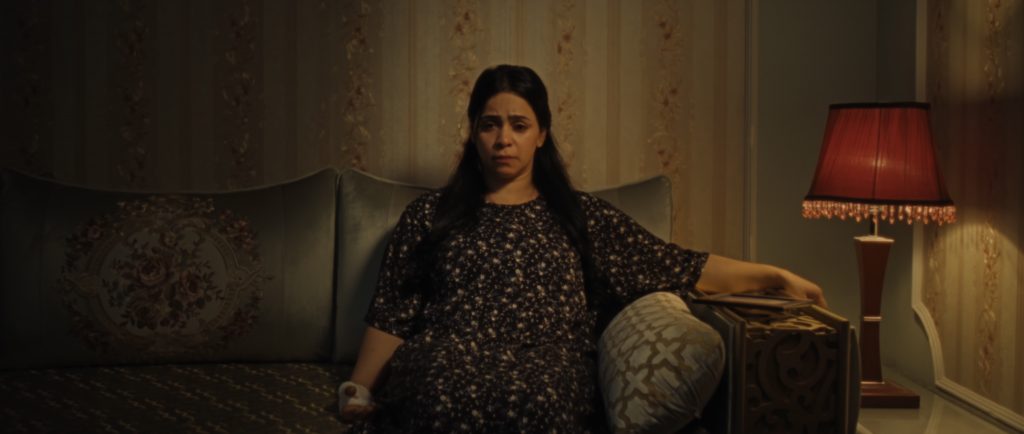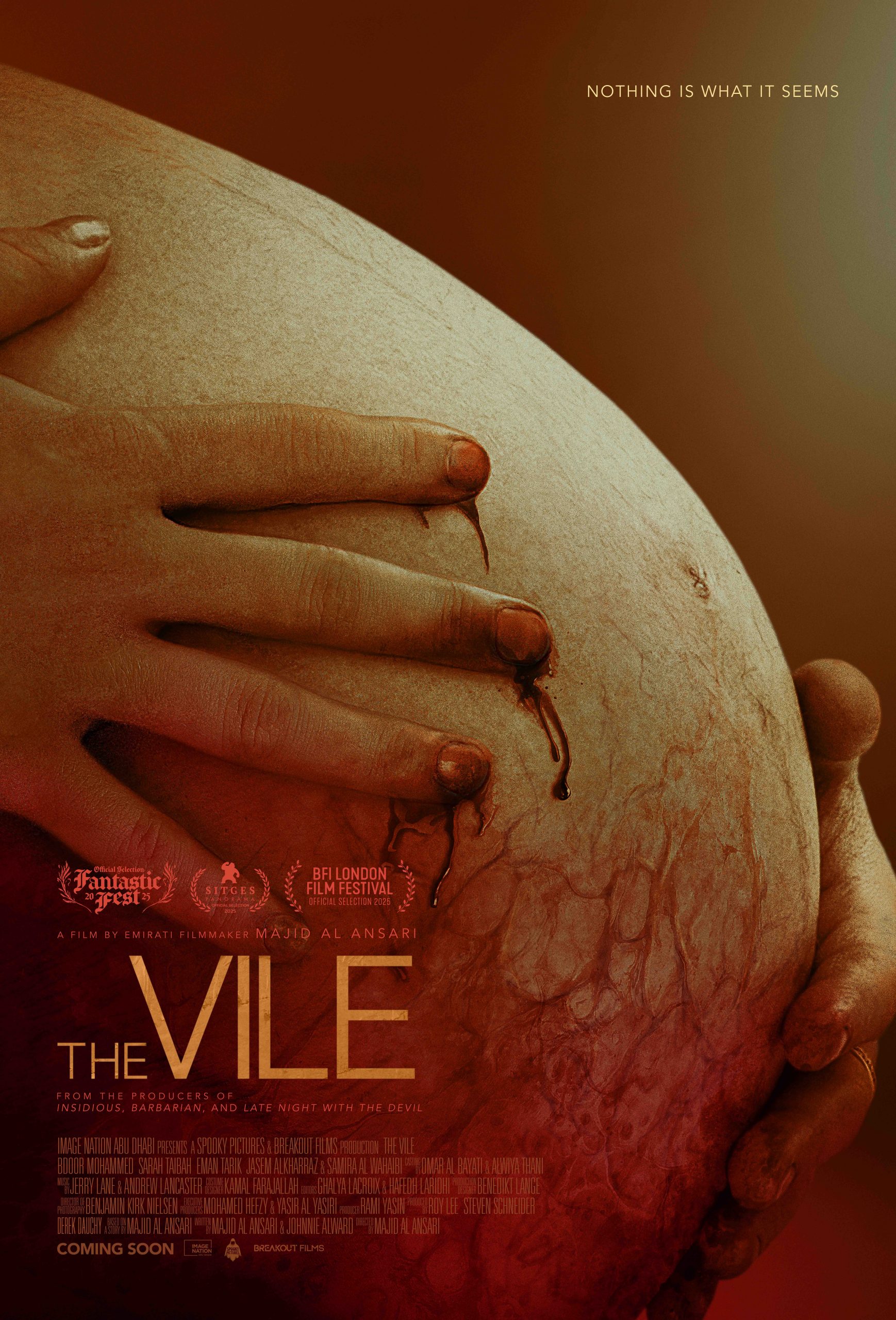Gaslighting, trauma, paranoia, hallucinations, self-harm, bullying, narcissism, and imposter syndrome are hazardous conditions related to mental health that, by themselves, invoke the need for psychological health assistance and make good drama films. Yet, they become the grounded foundation that is explored by ‘The Vile’ (2025), an innovative horror movie that takes place in the United Arab Emirates, being produced by this country and the USA, directed by Emirati Majid Al Ansari, who co-signs the screenplay with Westerner Johnnie Alward.
‘The Vile’ takes a different turn on the troupe of the third person that inserts themselves into a structured marriage, as seen before in the figures of the babysitter, the seductress coworker, or the stepmother. The picture depicts a local culture that allows a man to marry more than one woman, enabling this mysterious figure to enter the household of the father, mother, and their daughter, all with the excuse that the patriarch wants a male heir. In fact, everything is balanced, and they had a happy life, but papa is a greedy rolling stone.
Amani (Bdoor Mohammad) sees her status being ripped as her husband Khalid (Jasem Alkharraz) brings the second wife Zahra (Sarah Taibah), who is younger, good-looking, and a vixen oozing sex appeal. The newcomer to the household also affects the life of the couple’s teenage daughter, Noor (Iman Tarik), who feels her position as the sole daughter being disturbed by the announcement that Zahra is expecting a baby boy, the promised son that Amani wasn’t able to bear for Khalid.

Their family might be well-off, but it doesn’t save them from psychological strife, and ‘The Vile’, by using horror movie techniques, shows how harrowing it can be to live in an abusive household and the suffocation it causes to those who can’t just simply pick themselves up and leave without looking back. In many real-life stories, leaving abusive relationships is one of the most struggling acts to the victims.
‘The Vile’ is courageous to show that although protected by law and an ancient tradition, polygamy can lead to a hazardous, competitive and abusive environment to the wives and their children and that even though it is part of a rich culture, it has points that can be argued, and that this idea of polygamy is way different than the fetishization that goes through Westerner ideas by displaying how questionable it can be considering gender inequality and consensual relationships.
Al Ansari is a student of the game and an admirer of ‘Fatal Attraction’ and ‘What Ever Happened to Baby Jane?’, but there are also elements of classics like ‘The Hand that Rocks the Cradle’ and ‘Rosemary’s Baby’ that come into play. Nevertheless, ‘The Vile’ shines by portraying how horror can have peculiar nuances when translated to the dry lands of the United Arab Emirates, away from Western cultures and well-known cities like Los Angeles, New York, and London.
The picture focuses on female relations and how they are subjugated to patriarchal choices. Although Khalil is not much into the scene, his decisions affect the main characters, and the narrative follows the downward spiral of Amani and the dark coming-of-age story of Noor.
The cinematography is a strong asset, as it makes the United Arab Emirates feel otherworldly, giving it a distinct personality. This is particularly evident in the desert scenes, which feel more like a different world than a dry part of the ecosystem we live in, thus affirming how far from reality their ordeal is. The spacious house architecture, which sets it apart from other localizations, highlights how isolated and vulnerable Amani and Noor are, and how they must rely on each other to understand what is unfolding under their roof. ‘The Vile’ effectively illustrates how different cultures portray horror while also holding a critical lens towards society and the hardships of being a woman.

